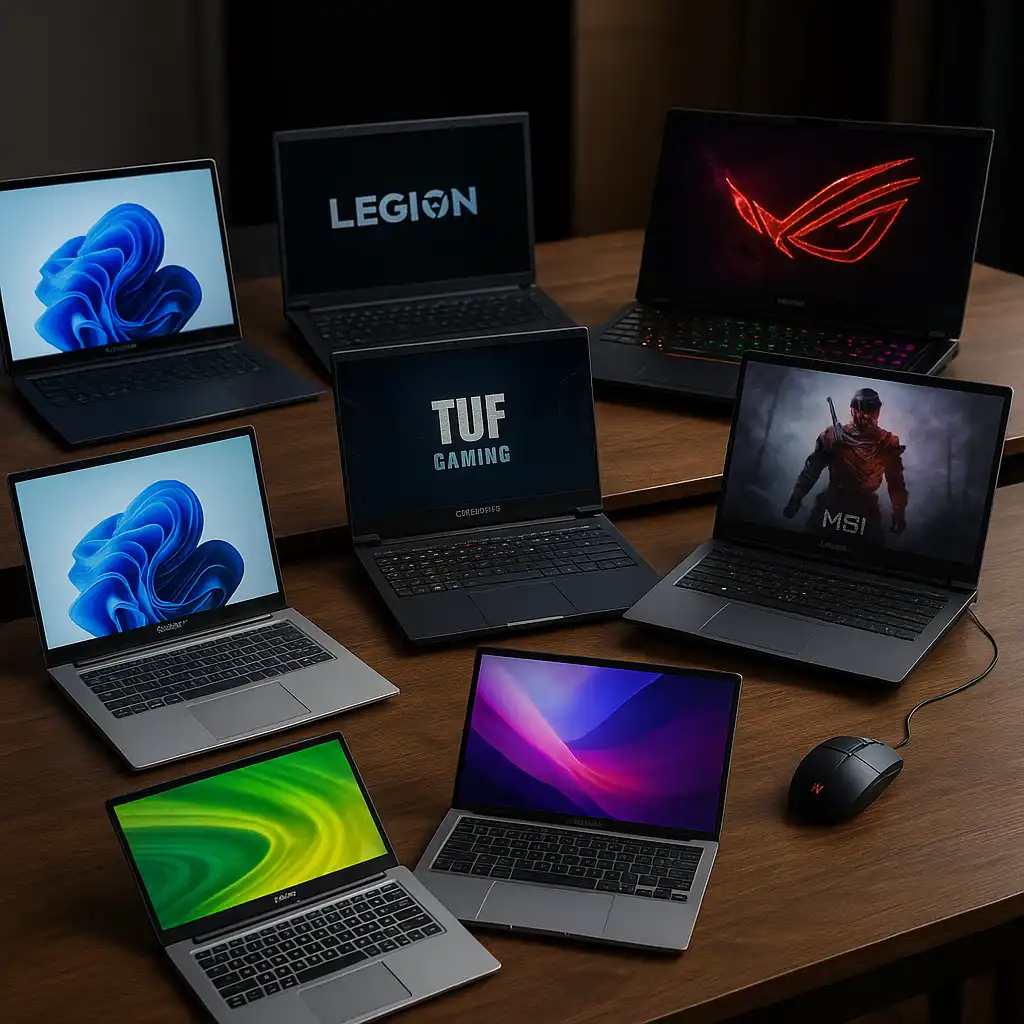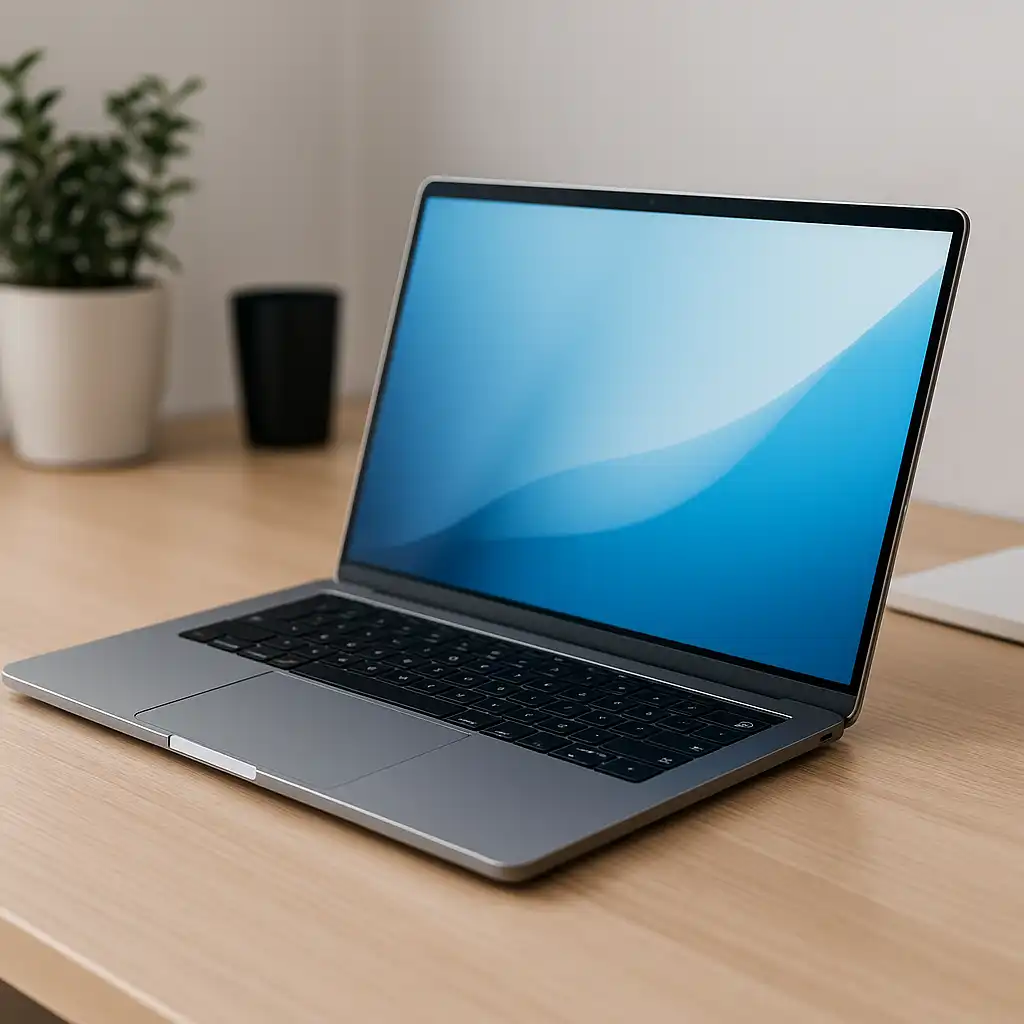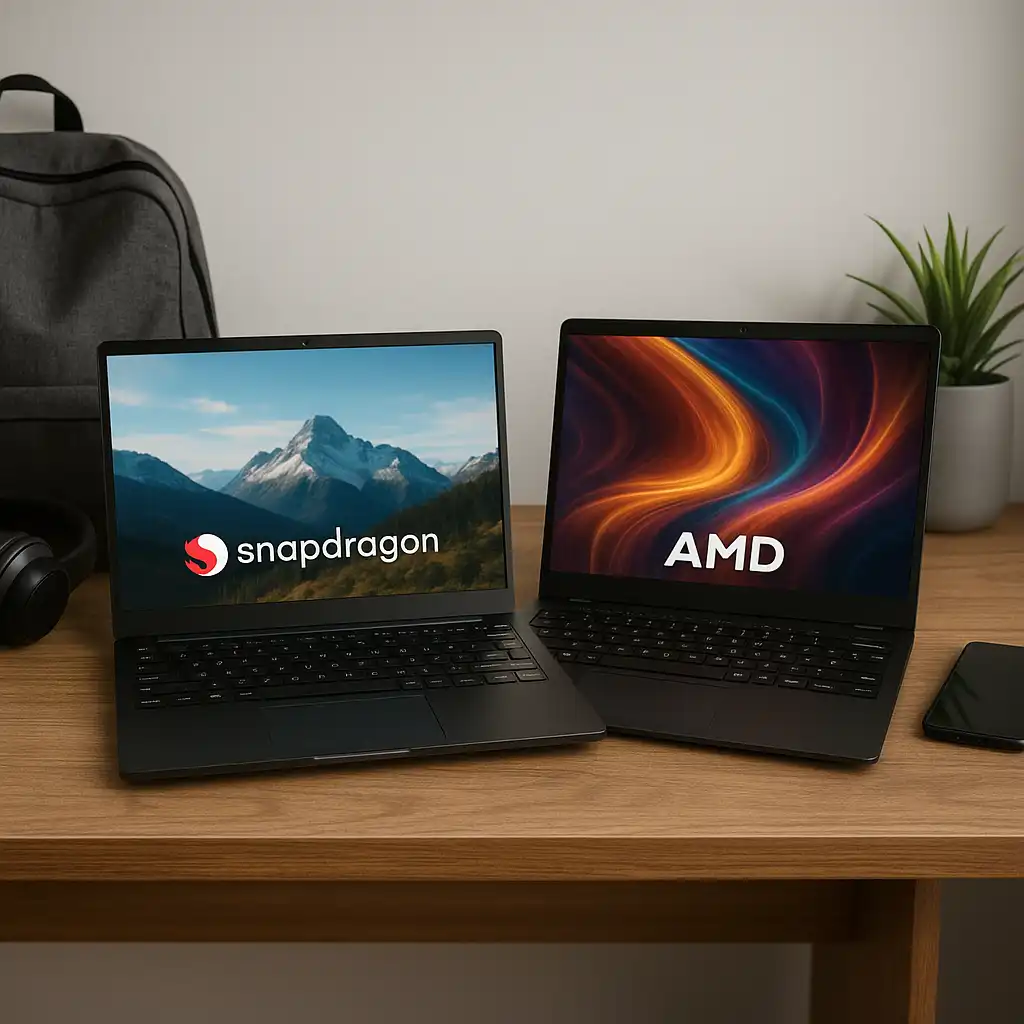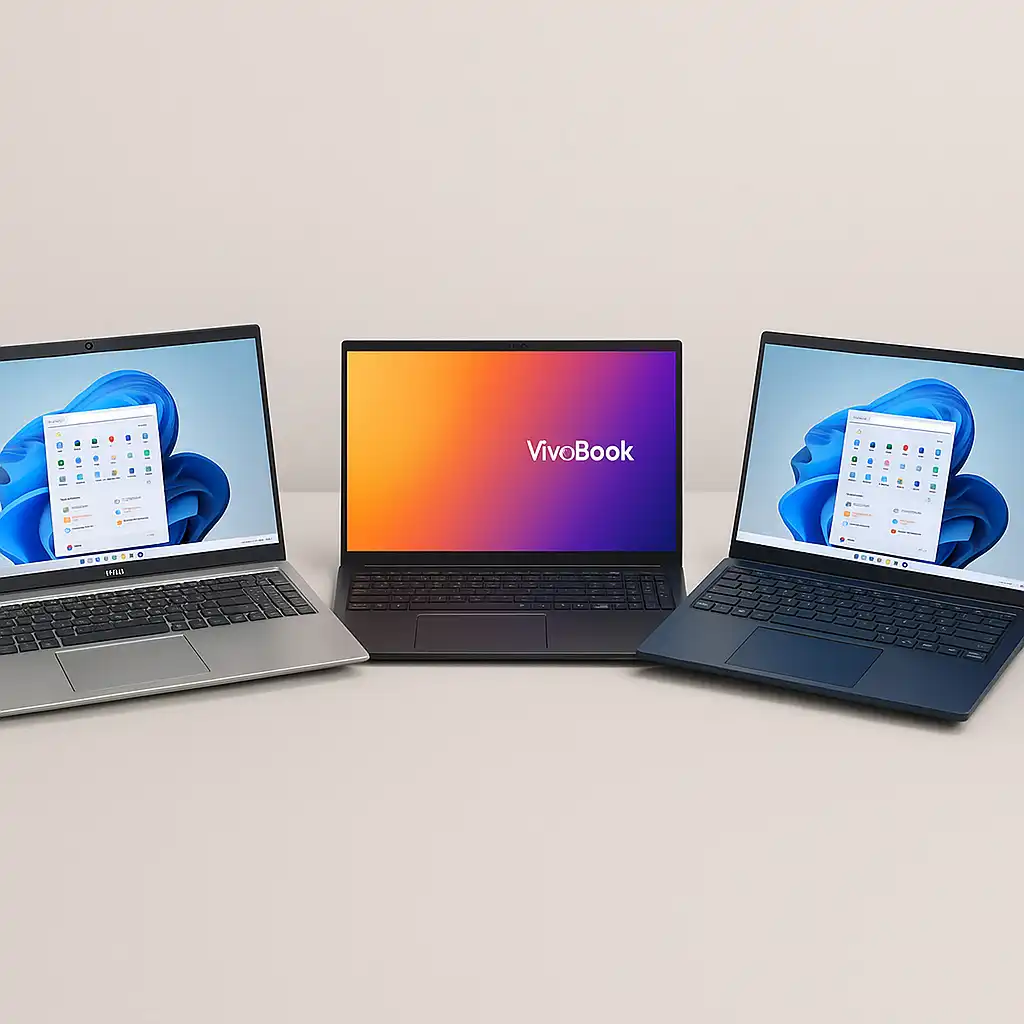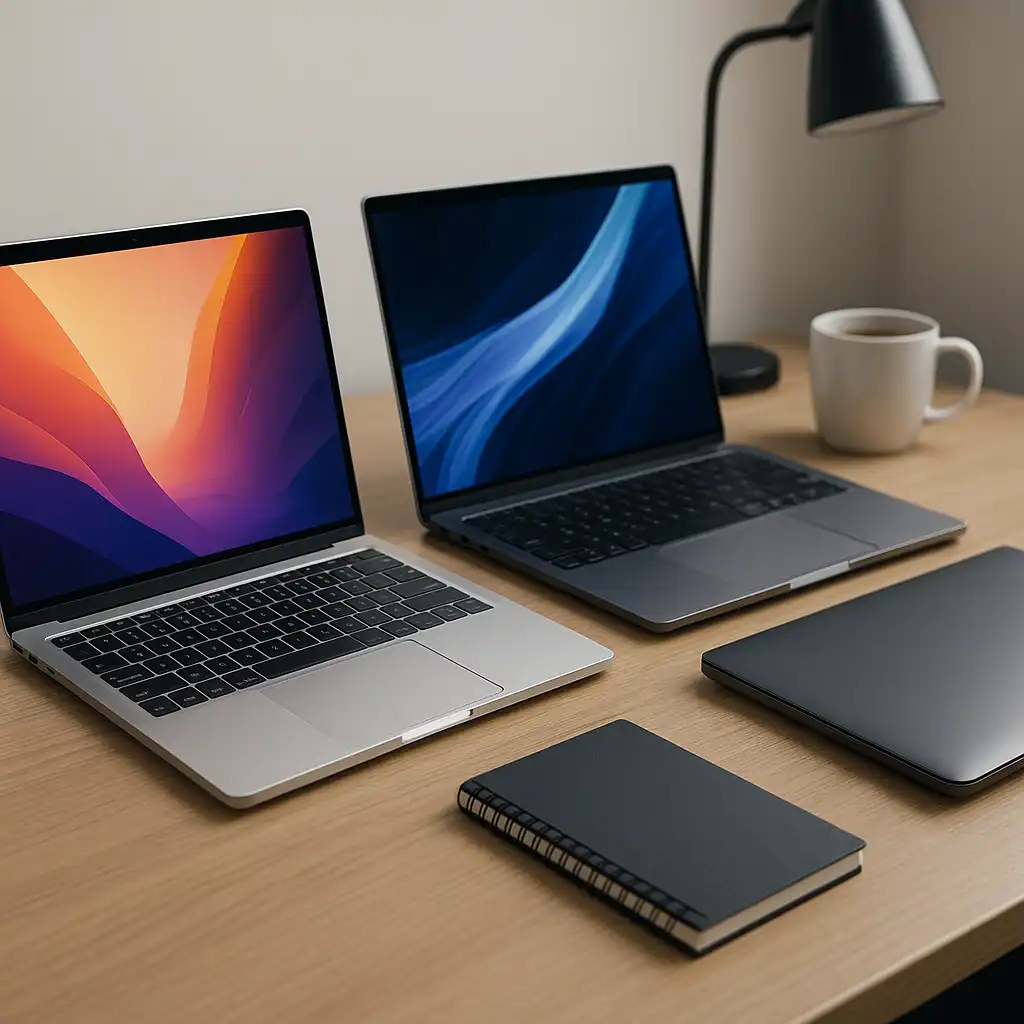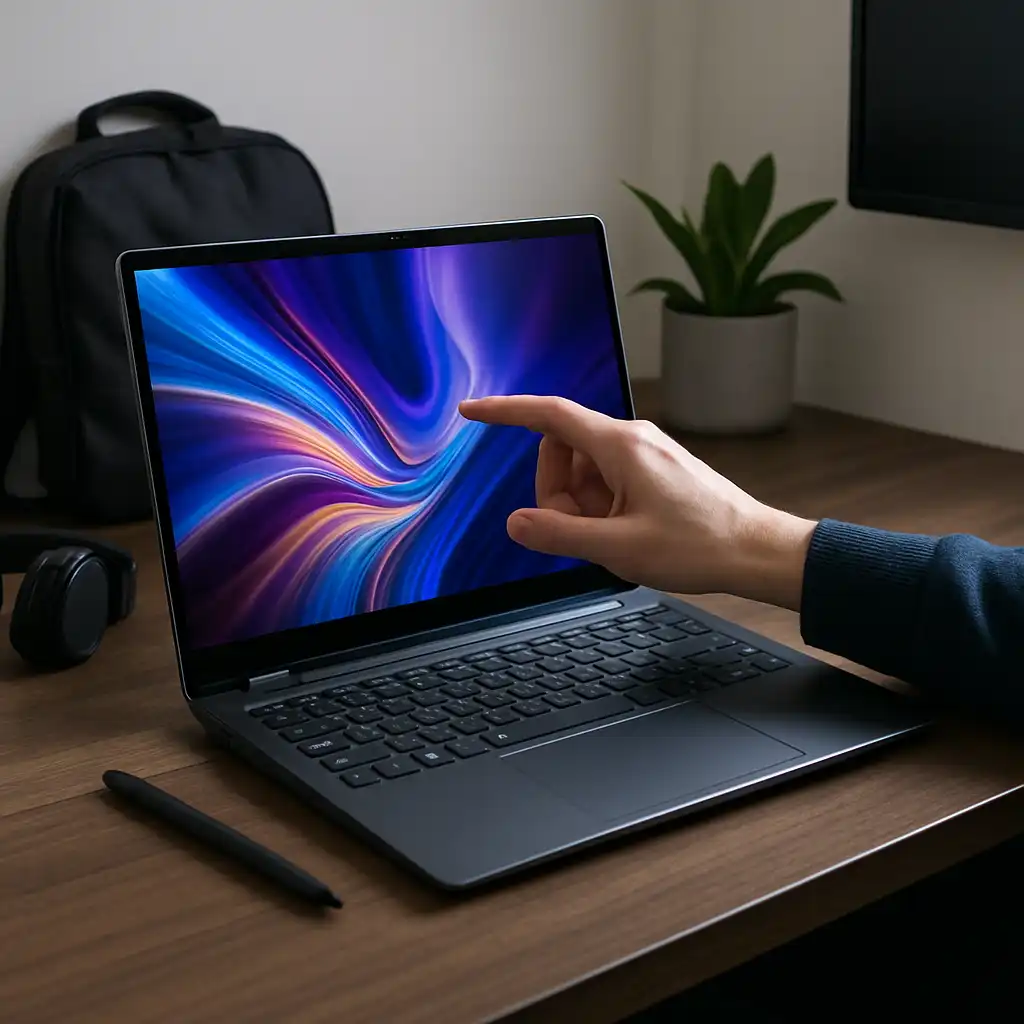What Features a Good Laptop Should Have for Everyday Use and Long-Term Value
Disclosure: This post contains affiliate links. LaptopVoyager.com participates in the Amazon Associates Program and may earn commissions on qualifying purchases, at no extra cost to you.
Last Updated: November 2025
Choosing a good laptop becomes much easier once you know which features actually matter for daily use. The right mix of performance, battery life, display quality, and build can keep your device running smoothly for years. This guide breaks everything down in a simple, beginner-friendly way.
👉 If you want examples of models with the right balance of speed and storage, check out our picks for the best 16GB RAM and 512GB SSD laptops for dependable performance.
🔍 Performance Features That Matter Most
A good laptop starts with solid performance. Look for a modern Intel Core, AMD Ryzen, or Apple M-series processor because these handle multitasking and updates far better than older chips. Pair it with 8–16 GB of RAM so the system doesn’t slow down when you have multiple tabs or apps open. And make sure it has an SSD — this alone makes a dramatic difference in responsiveness.
🔍 Storage and Speed (SSD Required)
Your laptop should always include an SSD. It boots faster, loads programs instantly, and generally makes the machine feel far smoother. A 256 GB SSD works for basic tasks, but 512 GB is much more comfortable for everyday storage. If you handle big files, 1 TB gives you plenty of room.
🔍 Display Quality and Brightness
A high-quality display makes long study or work sessions more comfortable. IPS and OLED screens offer better colors and viewing angles. Aim for 300–400 nits of brightness if you work near windows or spend time outdoors. Full HD is perfectly fine for most people, but creators or multitaskers may appreciate a higher-resolution display for clearer detail.
🔍 Battery Life You Can Rely On
A good laptop shouldn’t make you nervous about staying near a charger. Look for real-world battery life of 7–10 hours for regular use. Thin ultrabooks with ARM or M-series chips can comfortably go longer. Larger battery sizes and fast charging support give you more flexibility when traveling or working in cafés.
🔍 Portability and Weight
If you carry your laptop around often, weight matters. A device under 1.3–1.5 kg feels much easier to bring to class, on the bus, or in a backpack. Slim designs help too, especially if you switch between work and personal use throughout the day. Heavier models still make sense for gaming or editing, but most users benefit from something lightweight.
🔍 Build Quality and Durability
Good build quality is easy to feel right away. Strong metal bodies—like aluminum or magnesium—hold up better over time. Solid hinges, a firm keyboard deck, and a smooth trackpad all add to day-to-day comfort. If the laptop bends or flexes too easily, it likely won’t age well.
🔍 Ports and Connectivity
Convenient port selection makes everyday work smoother. You should look for a mix of USB-C and USB-A ports, HDMI for external screens, and ideally an SD or microSD card slot for creators. Thunderbolt 4 or USB4 ports allow fast transfers and docking setups. For wireless performance, Wi-Fi 6 or 6E gives you stable, modern connectivity.
🔍 Graphics Power (Integrated vs Dedicated)
Integrated graphics are perfectly fine for browsing, streaming, office work, and light editing. But if you plan to game or handle more advanced creative tasks, a dedicated GPU — like NVIDIA’s RTX 3050 or 4060 — offers significantly more power. Choose based on what you actually plan to do with your laptop.
👉 If you’re not sure what graphics your laptop has, check our simple guide on how to check your laptop’s graphics card.
🔍 Extra Quality-of-Life Features
Small details can make a good laptop feel great. A backlit keyboard helps when working at night. A fingerprint reader or facial unlock speeds up logins. Higher-resolution webcams improve video calls, and good speakers make entertainment or meetings clearer. If the laptop allows RAM or storage upgrades, that’s an extra bonus for long-term flexibility.
📌 Key Takeaways
- A good laptop should have a modern processor, 8–16 GB of RAM, and an SSD for fast everyday performance.
- IPS or OLED displays with at least 300–400 nits of brightness offer the best comfort for long sessions.
- Aim for 7–10 hours of real-world battery life so you’re not always hunting for a charger.
- Lightweight builds under 1.5 kg make daily travel easier, while metal bodies add durability.
- A mix of USB-C, USB-A, and HDMI ports keeps your accessories simple to use.
- Integrated graphics are fine for daily tasks, while dedicated GPUs help with gaming and creative workloads.
- Quality-of-life features like backlit keyboards, fingerprint login, and upgradeable storage make long-term use smoother.
🟢 FAQs
Q: What’s the most important feature in a good laptop?
The processor, RAM, and SSD are the core trio that determines everyday speed and overall smoothness.
Q: How much RAM should a good laptop have in 2025?
8 GB still works for basic tasks, but 16 GB gives you a noticeably smoother experience and better future-proofing.
Q: Does screen quality matter for casual users?
Yes. A bright, sharp display makes reading, typing, and browsing more comfortable, especially during long sessions.
✅ Conclusion
A good laptop brings together strong performance, long battery life, a clear display, and a reliable build. When these essentials line up, the device feels smooth and enjoyable to use whether you’re studying, working, or creating. Focusing on the features that matter helps you choose a laptop that lasts and stays valuable over time.


